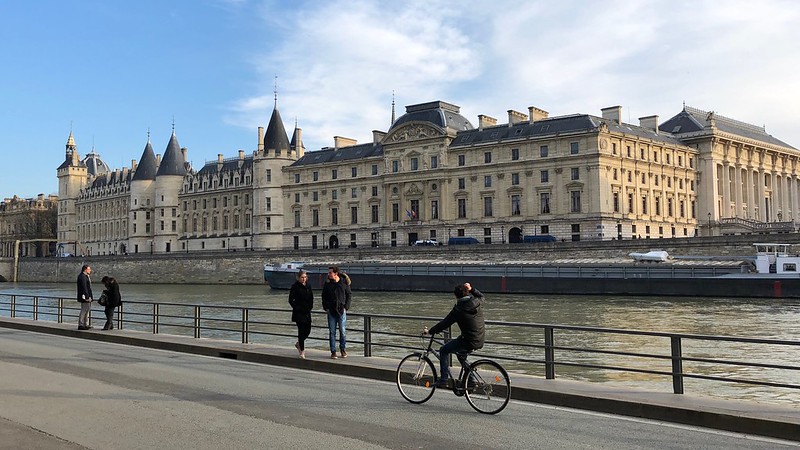
Photo: Joan (Flickr)
Programme launched to expand ’15-minute cities’ globally
22 September 2022
by Christopher Carey
Danish financial firm Nordic Real Estate Partners (NREP) is partnering with global mayors’ network C40 to create more 15-minute neighbourhoods in cities around the world.
At least five municipalities – yet to be announced – will take part in pilots which aim to reduce car use and boost the liveability of cities.
“This new programme will empower cities to implement the concept on the ground, and to deliver ‘green and thriving neighbourhoods’ pilot projects,” said C40 Executive Director Mark Watts.
The 15-minute city concept was developed by Carlos Moreno, scientific director of Sorbonne University’s ETI Lab and Paris’ special envoy for smart cities, and interest in adoption has increased since the pandemic.
The idea is based on the goal of having most daily necessities – including housing, grocery shops, childcare, schools, healthcare facilities, green spaces, recreation, and access to public transport – within a short walk or cycle from home. This in turn should reduce the need to use cars and cut carbon emissions.
NREP has pledged an initial commitment of US$500,000 to fund the plan over two years.
“As much as 60-70 percent of the world’s CO2 emissions come from cities, so the quest for greener urban solutions is urgent,” said NREP CEO Claus Mathisen.
“This partnership is an opportunity to shape what a sustainable and equitable city is and to create a blueprint for urban development that will help not only cities to drive ambitious urban policies but also business and other stakeholders to engage and adapt their operational models.”
With support from strategic partners including Moreno and UN-Habitat, the programme will also work to create an international network of city practitioners who work together, advise and learn from one another to “build green and thriving global neighbourhoods”.
Increased focus
Seizing the opportunity to introduce pedestrian-only streets, turn parking spots into pop-up restaurants and add more bike paths, cities from Paris to Seattle have transformed once car-centric areas into walking and cycling havens.
According to the Intergovernmental Panel on Climate Change, locating jobs and homes in close proximity to one another and providing good public transportation and mixed land use can help cut emissions by around 25 percent.
“There is an appetite for more liveable, people-oriented cities that has been reinforced by the COVID-19 crisis, driving a surge of interest in the ‘15-minute city’,” said Paris Mayor Anne Hidalgo.
“A green and thriving neighbourhood should enable residents of all ages, backgrounds and abilities to meet their daily needs close to home.
“It should support the local economy and green jobs, provide opportunities to walk, cycle and takes public transport, offer better waste management solutions and cleaner energy systems and incorporate green infrastructure – all of which contribute to accelerating climate action, while benefiting other critical urban agendas, such as promoting equity, prosperity, resilience and quality of life.”
Image: Joan (Flickr)







